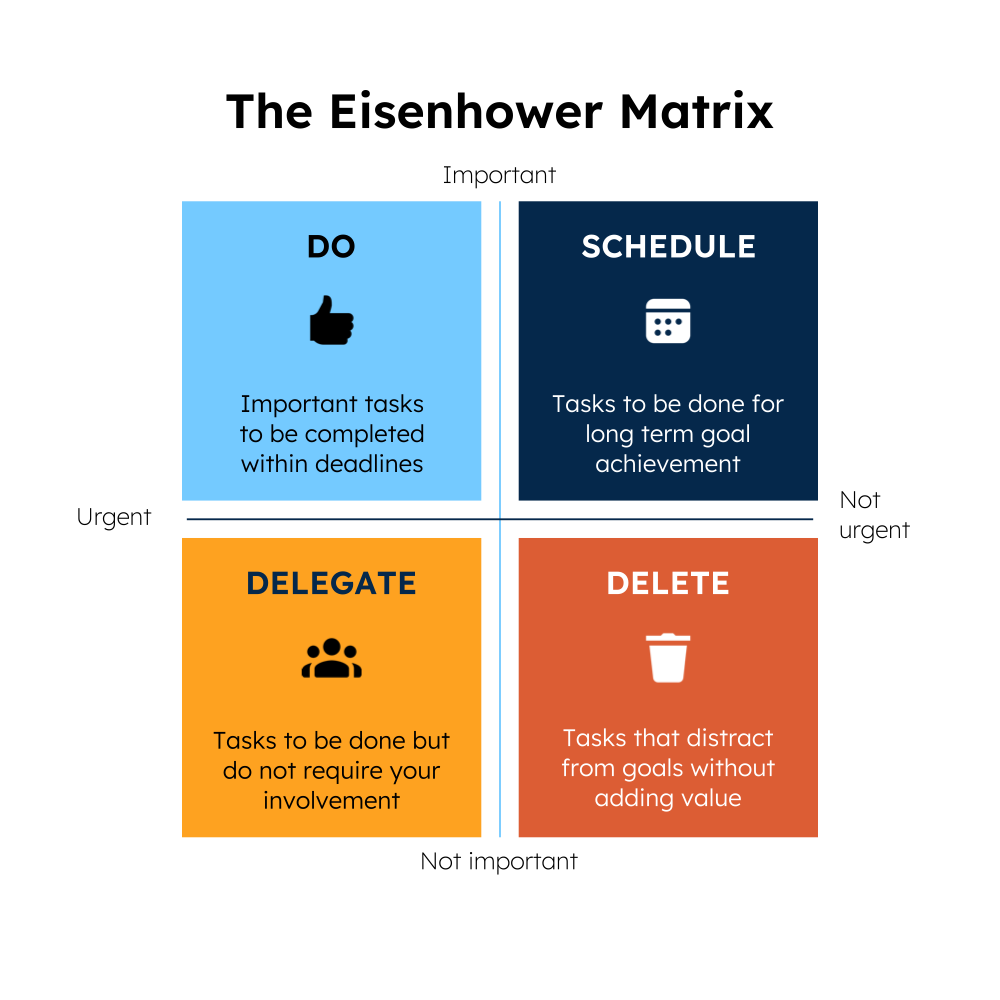Why Is Time Management Important In The Workplace?

Table of contents
Whether you’re a newbie or an expert, you always need an extra hour to complete the tasks on your to-do list. An employee may have the exact skills, knowledge, and experience that your company requires. They may be intelligent, hardworking, and enthusiastic about their job. They’re all great qualities to have, but each can suffer if the employee lacks one crucial skill: time management.
Only 18% of people have an effective time management system in place. The remaining 82% either make a list by hand or do nothing to properly manage their time. That means that the vast majority of the population is not operating at peak efficiency.
It’s difficult to control every minute of your day, especially when there are so many distractions. Our parents and teachers have always told us to spend our time and money wisely. In this article, we will discuss the importance of time management. But, before we get into the importance of time management, let’s first define it.
What Is Time Management?
The concept might sound very simple, but what is time management ? It is organizing time by meticulously planning workloads so that employees can meet deadlines. Time management is not about working harder; it is about working smarter so that employees do not overburden themselves and put themselves under unnecessary stress.
Employees who manage their time effectively will meet deadlines, improve their efficiency, be more productive, and produce better work. They’ll also be more satisfied with their jobs because they’ll be less stressed, which will help them advance in their careers and, ultimately, lower your company’s staff turnover.
Why Is Time Management Important?

Source- https://99firms.com/blog/time-management-statistics/#gref
You can accomplish more with good time management, which gives you more freedom, improves focus, reduces stress, and allows you to be more productive. Let’s take a look at why time management is important at work.
1. Improved Performance
One of the most significant advantages of time management is that you perform better at work. If you schedule a block of time during your day for your most important tasks, you’ll have a better understanding of what you need to accomplish and how much time each task will take. Making a perfect schedule aids in time management, and adhering to a strict schedule reduces the likelihood of procrastination. When you stick to a schedule, you will spend less time deciding what to work on and more time completing important tasks.
2. Complete Work On Time
You can deliver work on time if you manage your time effectively. To effectively manage your time, assign each task on your list a separate time slot. Tasks that are assigned a specific amount of time to complete are more likely to be completed on time. It can be difficult to keep track of deadlines, and if you’re not careful, you can easily miss them. If you are working to meet a deadline, you must allow for unexpected difficulties. To stay on track with your work and finish on time, make sure you start on time.
3. Reduced Stress And Anxiety
Workload and a lack of time to complete tasks can lead to stress. Stress can have a negative impact on both your productivity and your overall health. Excessive stress and anxiety have been linked to heart disease, autoimmune diseases, obesity, depression, and other health issues. Make a priority list to distinguish between the more important and less important tasks. This way, you can keep track of the list and complete the tasks in the order of their importance. We can eliminate unnecessary stress and anxiety from our lives if we know what to do.
3 Simple Time Management Tips For Employers

Source- https://truelist.co/blog/time-management-statistics/
You, as an employer, wear many hats. You’re the ship’s captain, the team’s leader, and the decision-maker. With so much on your plate, effective time management becomes not only important but also necessary. Working smarter, not harder, is the goal of time management. It’s the difference between thriving and struggling businesses. Now, let’s dive into these five practical and straightforward time management tips designed specifically for employers, emphasising the objectives of time management.
1. Wise Delegation
Don’t try to do everything yourself. Delegate tasks to members of your team based on their skills and abilities. It’s like having a superhero team, each with their own special ability. You save time and help your team grow by effectively distributing tasks.
2. Establish Clear Priorities
Just as not everything can fit at the top of your suitcase when packing for a trip, not everything can fit at the bottom. Determine the most important tasks and begin with them. This ensures that you are concentrating on what is truly important. It’s similar to eating your vegetables before dessert – it’s the most effective way to stay healthy and satisfied.
3. Utilise Technology
There are numerous digital tools and apps available to assist you in better managing your time. It’s like carrying around a personal assistant. These tools can help you remember important tasks, schedule meetings, and stay organised.
3 Simple Time Management Tips For Employees
Have you ever wished there were more hours in the day? We’ve all been there, but here’s the trick- you can’t add more hours to your day, but you can make the most of the ones you have. That’s when the benefits of time management in the workplace come to the rescue. Let’s look at how does time management help and dive into five practical tips that will improve your work life.
1. Create a To-Do List
Begin your day by making a list of the tasks you need to complete. Make a paper copy or use a digital tool, such as a smartphone app or computer software. This list will serve as your daily road map. By writing down your tasks, you will be less likely to forget important things that you need to do. There’s also a sense of accomplishment in crossing items off your list as you finish them.
2. Task Prioritization
Not all tasks are created equal. Some are more critical and pressing than others. Consider using a system like the Eisenhower Matrix to effectively prioritize. This is how it works-
Urgent and Important: Do these tasks first.
Important, but Not Urgent: Schedule these tasks for later.
Urgent, but Not Important: See if you can delegate these tasks to someone else.
Not Urgent and Not Important: These tasks can often be eliminated or postponed.
3. Set Time Limits
Assign a time limit to each task on your list. This method is known as time blocking. When you set a time limit for a task, you are less likely to waste time on it. To help you stay on track, set a timer or set alarms. When the timer goes off, proceed to the next task, even if you haven’t finished the previous one. This keeps your day on track.
Facts About Time Management
Mastering the art of time management has emerged as an indispensable skill in the relentless flow of modern life. Here are some facts about time management in our modern work environment.
- Only about 20% of the average working day is spent on meaningful activities.
- Senior managers attend meetings for more than 23 hours per week.
- A time management system is not used by 82% of people. They simply use a list or their inbox.
Read more: How to Use Time Tracking Software for Productivity Analytics and Insights
Conclusion
Effective time management allows you to become more focused and productive. A good time management strategy alleviates stress, allows you to prioritise, and allows you to work smarter, faster, and more efficiently. Good time management abilities can benefit both your professional and personal life. You can control your life and have more power and freedom once you master the art of time management. We hope this article has helped you understand the significance of time management at work.



